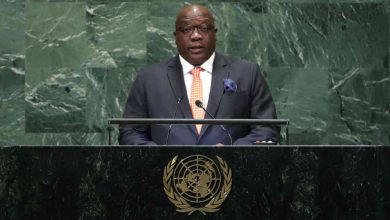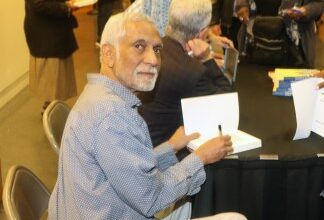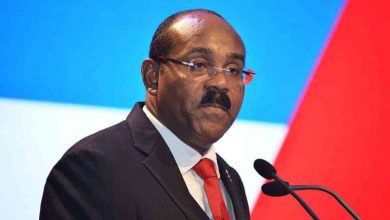Caribbean nations seek legal opinion of payment for climate polluters

Several Caribbean Community nations have approached a United Nations judicial body to determine whether western and other developed nations which are polluting the planet can be made to pay others which are victims of their industrial actions.
The countries, all part of the Small Islands Developing States (SIDS) grouping, have moved to the International Tribunal for the Law of the Sea (ITLOS) in Hamburg, Germany to seek a legal advisory opinion on whether they can indeed make the major polluters pay for their actions. Hearings began this week.
Antiguan Prime Minister Gaston Browne, the co-chair of the Commission on Small States, was among the first country and SIDS representatives to lead off arguments before the tribunal, contending that the time has come for victim nations to fight back the major polluters.
“It cannot be expected that our people will remain silent as their homes are irretrievably destroyed. This is the opening chapter in the struggle to change the conduct of the international community by clarifying the obligations of states to protect the marine environment. We are, after all, peoples of the ocean, whether in the Caribbean or the Pacific, in the Atlantic or Indian oceans, surrounded by the vast expanses of water that have sustained us from time immemorial,” Browne told the forum.
The Bahamas, Belize, St. Vincent and St. Lucia have all signed onto the case and effort along with Pacific member nations Palau, Niue and Vanuatu. He argued that SIDS nations are minimal polluters and producers of greenhouse gases and cannot continue to be victims forever. “Without rapid and ambitious remedial action, climate change may prevent my children and grandchildren from living on the island of their ancestors, the island we call home,” he said.
Browne had been a leading advocate of this effort to determine whether polluting nations can be held criminally responsible for their actions as annual hurricanes are now becoming super storms, as ocean levels rise and as global temperatures are hitting record levels.
“We cannot remain silent in the face of such injustice. We cannot abandon our peoples to such a cruel fate,” the Prime Minister argued.
He and his Pacific counterparts had established COSIS in 2021 to use international law to combat climate-altering actions by developed nations, especially as it affects small island developing nations, many facing existential threats because of a rapidly changing global climate.





